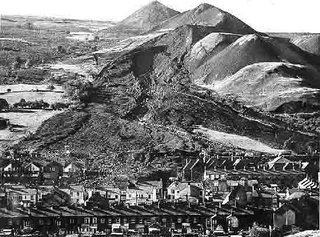 This was supposed to be embargoed until 5am tomorrow morning, but as reported in today's Glasgow Herald and on the Campaign for an English Parliament Newsblog, an English Constitutional Convention under Canon Kenyon Wright is to be launched at the House of Commons tomorrow afternoon to call for a "strong" English Parliament as part of a federal UK.
This was supposed to be embargoed until 5am tomorrow morning, but as reported in today's Glasgow Herald and on the Campaign for an English Parliament Newsblog, an English Constitutional Convention under Canon Kenyon Wright is to be launched at the House of Commons tomorrow afternoon to call for a "strong" English Parliament as part of a federal UK.Canon Wright was of course the chair of the Scottish Constitutional Convention in the 1990s which helped pave the way for Scottish devolution, and was also, like me, a supporter of the North-East Constitutional Convention established in 1998 under the chairmanship of the then Bishop of Durham, which aimed to establish a North-East Assembly as a precursor to English regional government.
In the press release announcing tomorrow's event, Canon Wright acknowledges that he was formerly an active campaigner for the regionalisation of England, but that he now believes only the establishment of a Parliament for England will answer "the so-called West Lothian Question."
He explains: "Two things have changed my personal view. First, it is now clear after the North East Referendum, that regional government is a non-starter in the foreseeable future, and we cannot wait for further change. Second, I have become convinced that England has a growing sense of national identity as strong as ours, and therefore that an English Parliament, if the people want it, is as much your right as we claimed it to be ours."
It is very hard to disagree with any of this. I myself reached the same conclusion within nine days of the referendum result, in a Newcastle Journal column published in November 2004 entitled England Expects a Fair Crack of the Whip.
People have asked me since how I could possibly be in favour of an English Parliament if I was also in favour of regional assemblies, but the point was that something needed to be done to give England/the English regions a stronger political voice as well as a fairer funding deal, and, bizarre as it may now seem, regional government looked for a long time like the most politically plausible means of achieving that.
Other members of the Great and the Good who have lent their support to the Convention include Iain Dale of the blogosphere, who recently cryptically hinted that he was up to something on the English devolution front and is clearly now one of the main proponents of the idea within the Tory Party.
His party leader, of course, disagrees, preferring to put his faith in the unworkable policy of English votes for English Laws. Canon Wright will argue tomorrow that simply banning Scottish MPs from voting in the Commons on English legislation will "create more problems than it solves."
It will also be interesting to see what Dr Vernon Coleman brings to the party. I still have a (review) copy of his book I Hope Your Penis Shrivels Up, in which he expresses the view that all supporters of foxhunting should be "buried from the neck down in the fast lane of the M4."
Whilst not fundamentally disagreeing with the gist of those sentiments, I suspect that slightly more sophisticated arguments will be required if the campaign is to succeed in getting an English Parliament firmly on the national political agenda.

